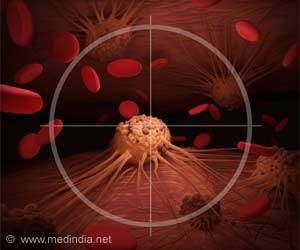The study was jointly conducted by a team comprising TIFR’s Malay Patra, Manikandan M., SushantaChhatar, ShubhankarGadre, ARI’s Chinmay Patra and Gourav Chakraborty, and IIT-Hyderabad’s Naushad Ahmed.
Malay Patra told IANS said that the new therapeutic agent, ‘Ruthenium-Ferrocene Bimetallic’, has the potential to curb primary tumor growth through antiproliferation (use for inhibiting cell growth) and checking metastasis (growth) through antiangiogenesis, or ‘killing two birds with one stone’.
Patra, who is the Principal Investigator, Medicinal Chemistry and Cell Biology Laboratory at the TIFR’s Department of Chemical Sciences, said that the new agent restricts new blood vessel development and can help treat cancer cases that prove resistant to platinum drugs used for treating the disease.
Advertisement
So far, he said that extensive biological investigations have been undertaken in cellular models and on zebrafish, and the team is now planning to experiment the anti-cancer properties and toxicity of the new agent in mammals like mice.
The team’s research has been published in the ACS journal, showing the potential therapeutic implications of the therapeutic agents to manage platinum-resistant cancers, Patra said.
Source: IANS



